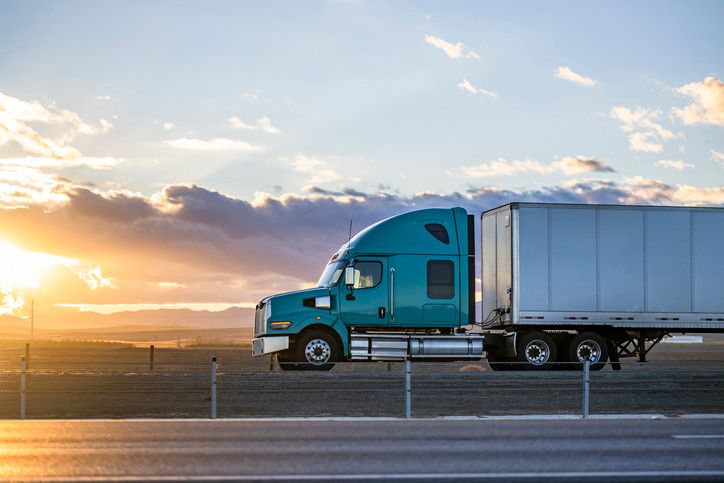Jackknife incidents stand out as particularly concerning when it comes to road carnage. These incidents involve large trucks folding into a V-shape, presenting serious risks to both drivers and passengers. Understanding the frequency of jackknife accidents is crucial for road safety awareness. In this guide, our experts at Hit by a Truck Call Chuck will explore the prevalence of these accidents and examine the common contributing factors.
What is Jackknifing?
Jackknifing is a term that describes a specific type of truck accident where the two components of the truck fold into an L or V shape. This hazardous scenario unfolds when the cab moves in one direction while the trailer goes in another, resembling the shape of a jackknife. Typically, jackknifing results from abrupt and unsafe braking by the truck driver. This dangerous maneuver not only jeopardizes the stability of the truck but also poses a significant risk of tipping over due to the shift in weight.
According to the Federal Motor Carrier Safety Administration (FMCSA), jackknife incidents account for 36% of large truck accidents yearly. There are about 2500 jackknife accidents in the United States every year. These accidents also account for 10% of all trucking-related deaths in the country. These numbers point to just how prevalent and dangerous jackknife accidents are.
What are the Causes of Jackknife Accidents?
Driver negligence is indeed a significant factor in truck accidents, including jackknife incidents. However, other contributing factors can lead to these accidents. Trucks, often carrying substantial cargo weight exceeding 80,000 pounds, face an increased risk due to their massive size. Common causes of jackknife accidents include;
- Speeding: Speeding is a critical factor in jackknife accidents. Trucks traveling at excessive speeds face extended stopping distances. If a driver abruptly applies brakes, it significantly raises the risk of jackknifing and potential crashes due to the truck’s delayed stopping capabilities.
- Wet weather conditions: Inclement weather, such as rain, snow, or sleet, contributes to slick and slippery road conditions. Trucks can lose traction, leading to an abrupt jackknife, even with minimal slickness on the road.
- Road curves: Steep road curves pose a significant risk, especially when trucks are navigating them at moderate speeds. The geometry of the curve can cause the trailer to swing while the cab is at a different angle, resulting in a jackknife situation.
- Poor road conditions: Roads with potholes, cracks, and uneven pavement are conducive to jackknife accidents. If a truck driver needs to maneuver to avoid hazards on poorly maintained roads, the trailer can jackknife, further emphasizing the importance of road infrastructure.
- Equipment malfunction: Sudden malfunctions in any truck component can lead to a loss of control, creating a prime environment for a jackknife situation. In the worst-case scenario, the truck may tip onto its side, highlighting the critical role of regular equipment maintenance and inspections.
To minimize the risk of accidents involving 18-wheelers, maintaining focused attention on the road is crucial. Distractions, especially in close proximity to these large vehicles, can lead to serious accidents. Cutting off a truck or failing to leave sufficient braking space increases the likelihood of collisions. Stay alert and drive cautiously around semi-trucks to avoid both accidents and the potential for jackknifing accidents.
Common Injuries Sustained in Jackknife Accidents
Jackknife accidents often result in severe and catastrophic injuries due to the substantial impact they can cause. The wide area covered by a jackknifing truck can lead to permanent injuries, including:
- Traumatic Brain Injuries (TBIs): The force of a jackknife accident can cause traumatic brain injuries, impacting cognitive function and potentially resulting in long-term consequences.
- Neck injuries: The abrupt and forceful movements during a jackknife can lead to neck injuries, ranging from whiplash to more severe trauma.
- Spinal cord injuries: The impact of a jackknife accident may cause damage to the spinal cord, potentially resulting in paralysis or other long-term complications.
- Internal bleeding: The force exerted during a jackknife accident can cause internal injuries, leading to bleeding that may not be immediately apparent but can have serious consequences.
- Broken bones and fractures: The sheer force of a jackknife accident can cause bones to break or fracture, affecting various parts of the body and requiring extensive medical intervention.
Our Truck Accident Lawyers are Here for You
Contact Hit by a Truck Call Chuck for dedicated legal support after a truck accident. Our skilled attorneys meticulously investigate your case and ensure a thorough understanding of your situation. We are here to promptly guide you through the process and provide the peace of mind you need. Contact our office today to discuss your potential claim.

